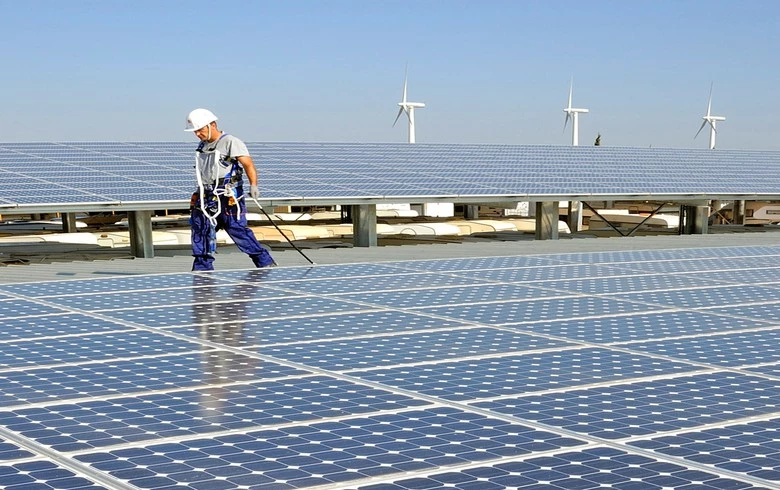“Staying the course on reducing the fiscal deficit, strengthening international reserves, maintaining tight monetary policy, and gradually phasing out inequitable energy subsidies while shielding vulnerable households is critical to maintain economic stability and support the political transition process amid elevated macroeconomic vulnerabilities,” said an International Monetary Fund (IMF) staff team led by Björn Rother at the end of a review mission to Tunisia on March 27- April 9.
This mission is intended to discuss Tunisia’s economic reform programme and policy plans for the Fifth Review supported by the IMF Extended Fund Facility (EFF) arrangement.
The disbursement of a $250 million loan tranche – the 6th- hinges on this review. The fund approved in May 2016 a four-year, $2.9 billion loan for Tunisia with $1.4 billion disbursed so far.
Tunisia will receive the second half of the loan in the period from early 2019 to April 2020.
Björn Rother said at the end of the review mission “it will also be important to better contain the public wage bill, which is among the highest in the world as a share of GDP. This will help create more space for critical spending on vulnerable households, education, and health.”
“New external challenges, including oil price volatility, a slowdown of growth in EU partner countries, and potential spillovers from conflicts within the region make progress with this agenda even more urgent,” he underlined.
“We acknowledge that the necessary measures have an impact on the Tunisian people, which is why efforts to accompany reforms with an enhanced social safety net are a priority,” Rother added.
A further acceleration of structural reforms, including to improve governance and the business environment, are necessary to build confidence. These efforts will help unleash the potential of the private sector and generate more opportunity and jobs for all Tunisians.
“We had constructive discussions with the authorities on their economic reform policies needed to complete the Fifth Review under the EFF arrangement. The Tunisian authorities are moving decisively on a policy agenda to stabilise and reform the economy, taking into account the strained socio-political situation in the run-up to Parliamentary and Presidential elections later this year. The Tunisian authorities and IMF staff have reached mutual understandings on most issues and agree that the authorities need some more time to fully flesh out their policy proposals in a few areas. Discussions will continue in Washington, DC, over the coming days,” reads a statement released at the end of the review mission.
“Tunisia experiences a modest recovery. Growth would increase to 2.7 percent in 2019 from 2.6 percent in 2018, which has been supported by strong performance of agriculture and services, particularly tourism. Nonetheless, economic activity continues to suffer from elevated political and economic uncertainty and structural bottlenecks such as often inadequate access to finance. Thus, growth has remained insufficient to make a dent in unemployment, which remains especially high for the youth and women.”
“The authorities have continued with policy and reform implementation; however, elevated macroeconomic vulnerabilities still threaten economic stability.”
“The authorities have tightened monetary policy to contain inflationary pressures and achieved a noteworthy reduction in the fiscal deficit. The 2018 tax measures and reinforced tax collection have improved revenues, while energy price increases have helped to contain the growth of energy subsidies that mostly benefit the better off. This has allowed for increased spending on job-creating public investment and social programmes, which have respectively increased to 5.6 percent of GDP and 2.7 percent of GDP in 2018. “
“Coverage of the national assistance programme to vulnerable families has been expanded (from 250,000 to 285,000 families) and its benefits levels have been increased. Besides, the authorities are improving access to medical care for the less well-off and registered 600,000 households in a database that will facilitate the targeting of social policies.”
“Sizeable imbalances continue to hamper Tunisia’s growth and job potential. Growth remains too dependent on consumption, while investment and exports remain insufficiently dynamic. And Tunisia’s large and growing external and public debts give rise to large financing needs and represent a strong burden for future generations. Finally, despite some decline, inflation still exceeds 7 percent, threatening the purchasing power especially of the vulnerable in society.”
The IMF team met with Prime Minister Youssef Chahed, Minister of Finance Ridha Chalghoum, Minister of Development, Investment and International Cooperation Zied Laâdhari, Minister of Major Reforms Taoufik Rajhi and Central Bank Governor Marouane El Abassi.
There were also discussions with representatives of the labour and employers’ unions, the private sector and civil society.
TunisianMonitorOnline




